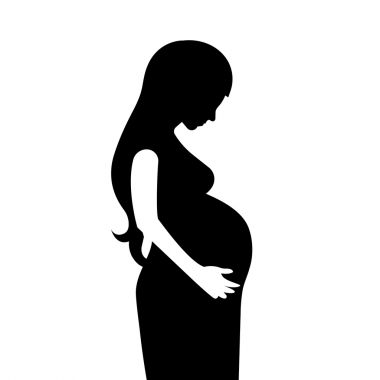Decriminalising abortion would harm more women and babies

Last week, news broke that a 44-year-old mother of three was jailed for two years for inducing an abortion after the legal limit. Carla Foster took abortion pills while almost eight months pregnant, leading to her unborn baby, Lily, being stillborn. The judge overseeing the case described the mother's overwhelming remorse and brokenness about what happened.
This case is both shocking and heartbreaking. I believe it demands a two-fold response – both lament about the death of a beautiful baby, and compassion for a mother who has suffered unimaginable trauma. Sadly, we haven't seen this from many in the political sphere in recent days. Instead, we've seen cynical campaigning.
'Pro-choice' groups and politicians are using the case to call for full decriminalisation of abortion in England and Wales, as is currently the case in Northern Ireland. While decriminalisation would mean women in situations like Ms Foster's would not face prosecution, it wouldn't do anything to reduce harm to women or babies.
Decriminalisation is the first step in a campaign seeking to remove abortion restrictions altogether. Campaigners want women to be able to opt for an abortion at any stage of pregnancy up to birth itself, with no consequences. More traumatic late-term abortions would be the result. Campaigners who want this refuse to recognise the humanity of an unborn baby until it is outside the womb. Their position is extreme, and out-of-step with wider public attitudes.
In England and Wales, late term abortion – at 24 weeks or later – is only permitted in narrow circumstances. For example, when the mother's life is thought to be at risk, or the baby has a disability. At present, late term abortions account for a small number of all abortions. In 2020, there were 236 abortions at 24 weeks or later in England and Wales; 229 of which were based on the baby having a disability. A total of 46 were at 32 weeks or later.
These numbers are very small when you consider that the total number of abortions in England and Wales in 2020 reached 209,917. Do we really want to open the floodgates to unrestricted abortions after eight months' gestation? Polling suggests that most women favour a lower abortion limit, as is the case in most European nations. The UK's current 24-week regime is among the most permissive in the world.
Stella Creasy MP Tweeted that "this case reveals the bitter truth contrary to what some claim. Abortion is not legal in England - you can be prosecuted for having one." That is because at the end of the day, Carla Foster's actions resulted in the death of her baby. She acted outside the law of the land which, mercifully, still provides some protection to the unborn.
I feel compassion for Foster and recognise that she acted out of desperation. She was also let down badly by BPAS, which supplied her pills via a telemedicine abortion scheme that is proven to be dangerous. At the same time, it is right that she is facing consequences for her actions. The fact that Foster feels regret about what she did confirms that she knows that it was wrong. The sentence handed down will deter other women from acting as she has – and causing harm to their babies and themselves.
It's important to stress that full decriminalisation of abortion will not resolve some of the systemic issues that drive women towards it. It is long past time politicians across the UK looked beyond abortion and asked what services and support is available to women who are pregnant.
Abortions have reached a record high in our nation and, contrary to what abortion groups claim, this isn't the mark of a compassionate society. A 2022 report found that almost 1 in 5 women claim the cost of childcare was the main reason they chose to have an abortion. We need politicians to be advocating for changes to legislation that will allow women to make life-affirming choices. Decriminalisation is a wrong and damaging solution to a much larger and more complex problem.
Dr Rebecca Stevenson is a Policy Officer at Christian Action Research and Education (CARE)











